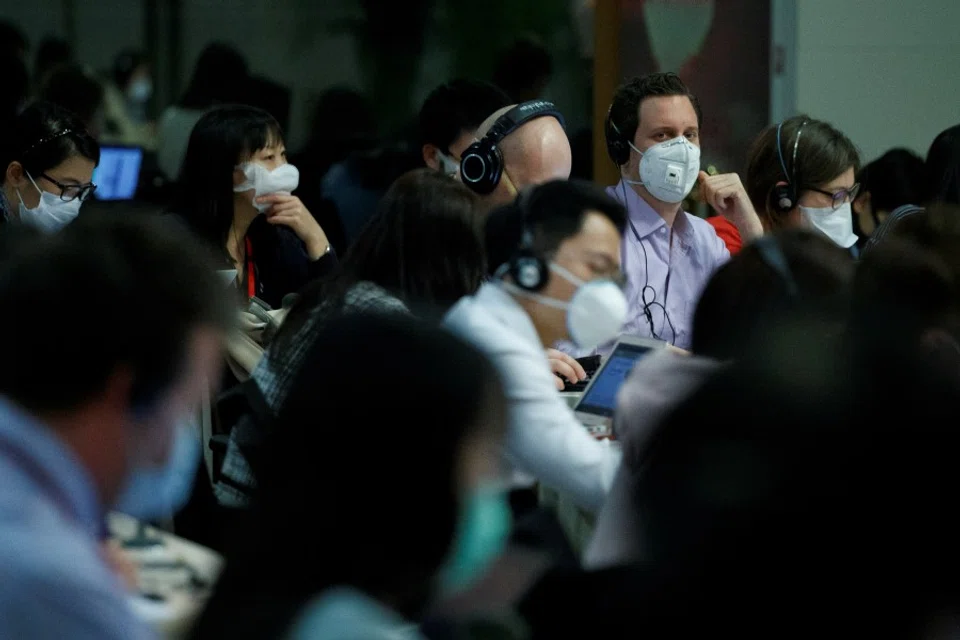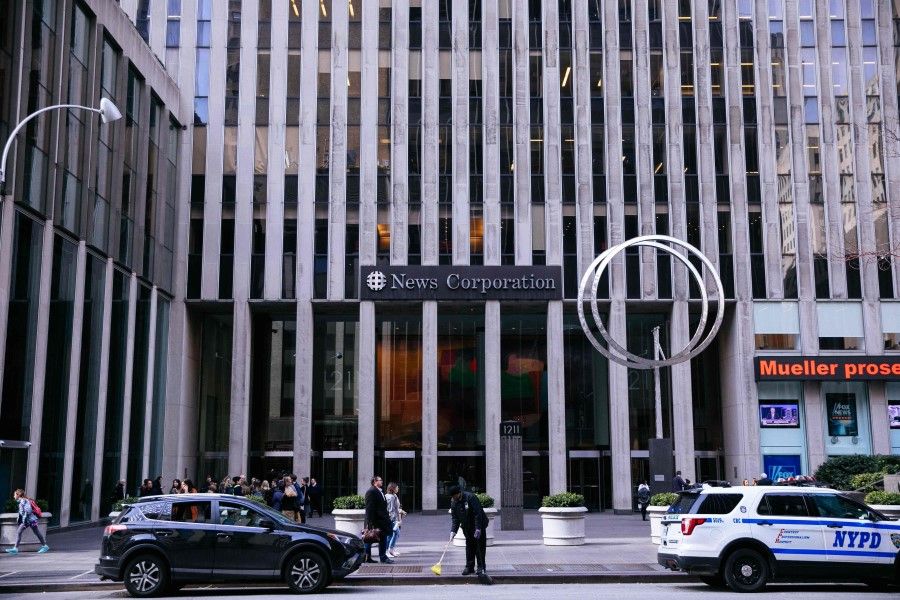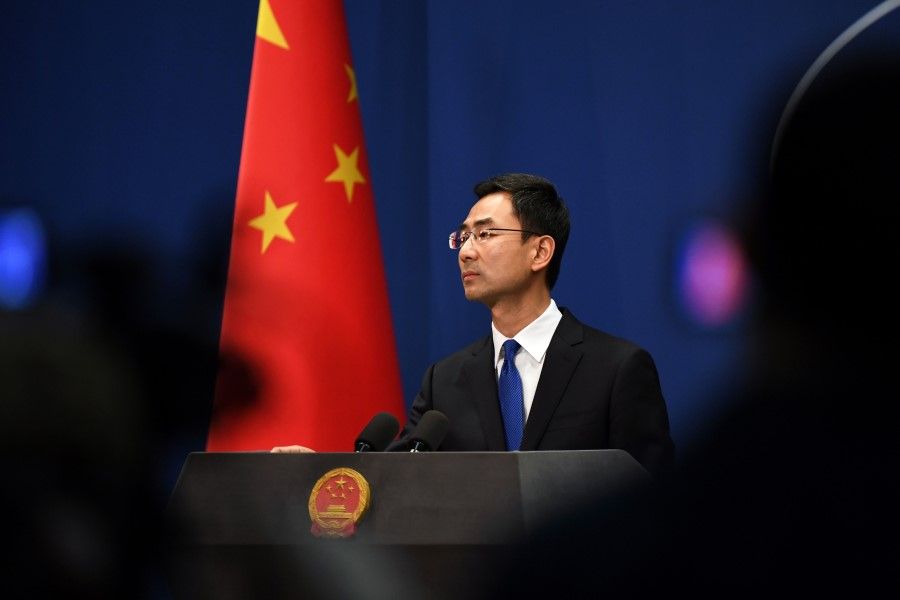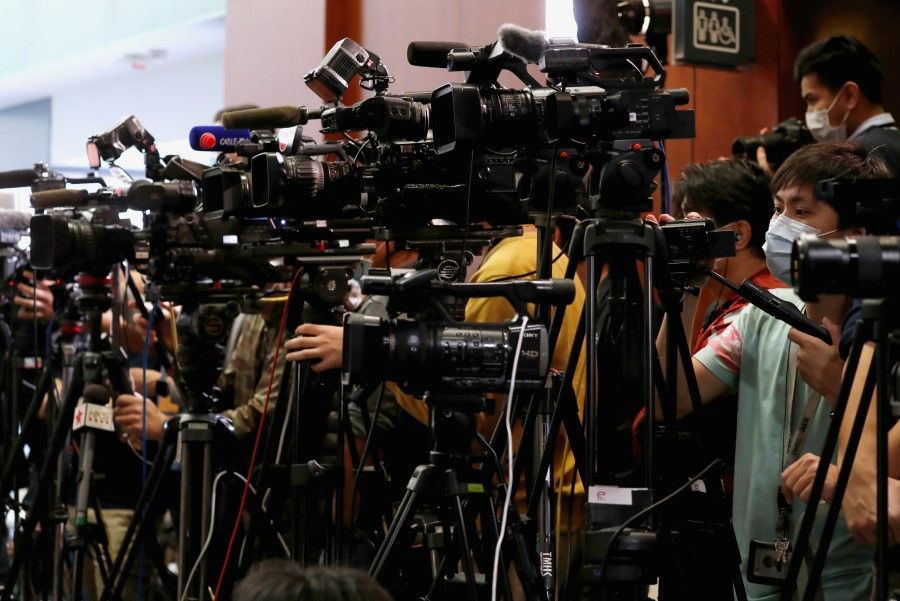US journalists expelled: Diplomatic clash or press freedom in downward spiral?

In strong retaliation to the US cutting the number of US-based Chinese media staff, China yesterday announced the expulsion of China-based US journalists from three major US newspapers. This unprecedented countermeasure has intensified the China-US media battle and worsened China-US relations, which are already tense due to the Covid-19 outbreak.
Tit for tat
In a sudden announcement in the early hours of 18 March, China's foreign ministry asked journalists of The New York Times (NYT), The Wall Street Journal (WSJ), and the Washington Post who were US citizens and whose press credentials would expire before the end of 2020 to return their press passes within 10 days. These journalists would subsequently not be allowed to work as journalists in the People's Republic of China, including Hong Kong and Macau.
The Foreign Correspondents' Club of China (FCCC) in Beijing estimates that the move will affect at least 13 US journalists.
China also requested the three news agencies above, as well as Voice of America (VOA) and Time magazine, to submit information on all staff, finances, operations, and fixed assets within China, hitting back at the US labelling five state-owned media organisations as "foreign operatives" and reducing the number of Chinese employees in these organisations.
Observers are concerned about the continued escalation of China-US tensions.

More worrisome than the trade war
Professor Wu Xinbo of Fudan University said this is an unprecedented retaliatory move by China, and it is no longer a disagreement with individual US media, but unhappiness with US policies.
He felt that the moves by both sides signal the highly tense relationship between China and the US, and is even more worrisome than the trade war. He said, "The trade war was about an exchange of interests, but now there is no common ground at all for discussion."
Prof Wu predicts that with problems such as the Covid-19 outbreak, economic recession, and stock market volatility, the US may continue to point fingers at China to ease the pressure of public sentiment, which will lead to further deterioration of China-US relations in the short term.
"There are no winners in the use of journalists as diplomatic pawns by the world's two preeminent economic powers." - the Foreign Correspondents' Club of China
Just prior to China's expulsion of US journalists, both countries were at odds over the source of the Covid-19 coronavirus. Professor Shi Yinhong of Renmin University of China said China's move at this juncture shows the growing ideological conflict between both countries, and can be understood as China hitting back at the US for attributing the source of the Covid-19 coronavirus to China.
That news organisations have been sacrificed in the China-US conflict has also sparked concern that the media will be caught in diplomatic tussles. "There are no winners in the use of journalists as diplomatic pawns by the world's two preeminent economic powers," the FCCC said in a statement.
The statement also claimed that China had expelled nine foreign journalists since 2013, and that some journalists had only obtained truncated visas with a validity of six months or less, some as short as one month.

Yesterday's daily press briefing by China's foreign ministry was packed, with many foreign journalists expressing concern that China's move may lead to less space and freedom for foreign reports on China.
A British journalist who declined to be named said, "China's retaliation is expected, but the atmosphere now is very repressed. Press passes might be more restricted in future, and everybody will be affected."
Responding to a question on why the affected US journalists were not allowed to carry out journalistic work in Hong Kong and Macau either and whether this goes against the "one country, two systems" policy, China's foreign ministry spokesperson Geng Shuang said, "In taking these countermeasures against the US, the Central Government is exercising its diplomatic authority in accordance with the 'one country, two systems' principle and the Basic Law. This is a professional, authoritative answer."
... the central government's recriminatory targeting of prominent US media organisations is unprecedented and overboard - Hong Kong Legislative Council member Claudia Mo
The Foreign Correspondents' Club (FCC) in Hong Kong yesterday issued a statement saying that under the Basic Law, all decisions about employment visas for foreign nationals have been made independently by Hong Kong's Immigration Department, and if that system has changed, it would represent a serious erosion of the one country, two systems principle. It urged the Hong Kong government to immediately clarify the situation and provide assurances that foreign journalists will be able to continue working in Hong Kong.
A spokesperson for the Office of the Commissioner of the Ministry of Foreign Affairs of the People's Republic of China in the Hong Kong Special Administrative Region expressed strong unhappiness and objection to the FCC's comments. The spokesperson said China was forced to take necessary retaliatory action, and was not responsible for starting the incident. The FCC should express unhappiness with the US government and ask the US to correct its course, rather than get things reversed and criticise China.
Hong Kong Legislative Council member for the Council Front, Claudia Mo Man-ching, said the Basic Law states that immigration issues can be decided by the Hong Kong government. She said the central government ordering the Hong Kong government to refuse entry to foreign journalists is like declaring the death of the one country, two systems approach. She added that the central government's recriminatory targeting of prominent US media organisations is unprecedented and overboard.

Charles Mok, representing the Information Technology functional constituency on the Hong Kong Legislative Council, was concerned that if the Hong Kong government shuts out foreign media workers, this will weaken Hong Kong's press freedom and freedom of expression, which will impact one country, two systems and damage Hong Kong's status as an international financial centre.
Priscilla Leung, representing the Business and Professionals Alliance for Hong Kong on the Hong Kong Legislative Council, felt the incident was due to the US stirring trouble, and now that it has escalated to a diplomatic level, it is beyond the Hong Kong government and its legislation. Even if someone brings the matter to a Hong Kong court, "there is zero chance of winning". On whether she was worried that the US will invoke the Hong Kong Human Rights and Democracy Act or the United States-Hong Kong Policy Act and impose sanctions on Hong Kong, she said she did not wish for too much international conflict between China and the US.
"... permanent offices of foreign media and foreign journalists in China must abide by Chinese laws, regulations and decrees..." - China's foreign ministry spokesperson Zhao Lijian
Notes:
1. A 2019 report by the Foreign Correspondents' Club of China (FCCC) said:
• 82% of respondents experienced interference, harassment or violence while reporting
• 44% of respondents said their Chinese colleagues encountered harassment at least once
• 70% of correspondents reported the cancellation or withdrawal of interviews, that they knew or believed to be due to actions taken by Chinese authorities
• 22% of respondents said they faced difficulties with government bureaus and offices when renewing their visas and press credentials
• 21% of respondents said there were indications the difficulties were related to reporting
• 76% of respondents had interviews declined by sources who say they are not permitted to speak to foreign media, or who require prior permission to speak to foreign media
2. At a regular press conference on 2 March, when asked for his response to the FCCC, China's foreign ministry spokesperson Zhao Lijian said, "I need to stress that we never recognise the organisation you mentioned. It is so inappropriate and unwise for it to comment with secret prejudice at this particular timing.
"We always welcome foreign media's objective and comprehensive coverage of China and have always supported and facilitated their work in accordance with laws and regulations. At the same time, permanent offices of foreign media and foreign journalists in China must abide by Chinese laws, regulations and decrees and observe their professional ethics. This is the same everywhere in the world." To a question on the Chinese Foreign Ministry's suggestions on how journalists can avoid similar treatment, Zhao said, "What happened with regard to the Wall Street Journal reporters are only rare cases. The journal should draw lessons from it. There are more than 600 foreign correspondents in China. So long as they comply with Chinese laws and conduct coverage within the boundaries of laws and regulations, there is no cause for concern whatsoever."

